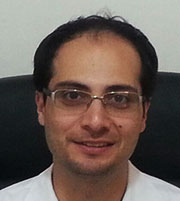Ethics of Publishing Case Reports: Do We Need Ethics Approval and Patient Consent?
An editorial by Dr. Mehrdad Jalalian

The worldwide spread of COVID-19 as an emerging, rapidly evolving situation, and the dramatic need of urgent medicine or vaccine, has rapidly brought new hypotheses for pathophysiology and potential medicinal agents to the fore. It is crucial that the research community provide a way to publish this research in a timely manner.
To contribute to this important public health discussion, the Electronic Physician Journal is excited to announce a fast-track procedure to help researchers publish their articles on COVID-19 related subjects that fall under the broad definition of public health, internal medicine, and pharmacology. We are especially welcome to all hypotheses about the pathological basis of the COVID-19 infection and the possible characteristics of potential medicine and vaccine. Submit your manuscript here
Our previous editorial (June 2020)
Lessons from COVID-19 pandemic and the Morocco’s success story.
An editorial by Dr. Benksim Abdelhafid (Morocco)

The 6th World Conference on Research Integrity (WCRI) is to be held on June 2-5, 2019 in Hong Kong.
The WCRI is the largest and most significant international conference on research integrity. Since the first conference in Lisbon in 2007, it has given researchers, teachers, funding agencies, government officials, journal editors, senior administrators, and research students opportunities to share experiences and to discuss and promote integrity in research. Read more:

TDR Clinical Research and Development Fellowships
Call for applications
Deadline for submission: 7 March 2019, 16:00 (GMT)
TDR provides fellowships for early- to mid-career researchers and clinical trial staff (e.g. clinicians, pharmacists, medical statisticians, data managers, other health researchers) in low- and middle-income countries (LMICs) to learn how to conduct clinical trials. Read more:

Meta-Analysis Workshops in New York, USA, and London, UK, in April and May 2019
Don't miss this exceptional opportunity to learn how to perform and report a Meta-analysis correctly. Two Meta-analysis workshops are organized in April and May 2019 by Dr. Michael Borenstein in New York, USA (April 08-10, 2019) and London, UK (May 27-29).

About the Instructor
Dr. Michael Borenstein, one of the authors of Introduction to Meta-Analysis, is widely recognized for his ability to make statistical concepts accessible to researchers as well as to statisticians. He has lectured widely on meta-analysis, including at the NIH, CDC, and FDA. Read more:
h-index (According to Web of Science): 12 (click here for more detail)
Fast Track Review of COVID-19 manuscripts
An Introduction to our January-March 2019 articles
Our new scheme for a waiver of the publication fee
Quality evaluation of one of our RCTs by AORN
Moving to Scholar One, a product of Clarivate Analytics

Common mistakes in statistical analysis of biomedical research:
An Interview with Amy Moore from George Washington University, DC, USA, November 18, 2018
An Introduction to our October-December 2018 articles
An Introduction to our September 2018 articles
An introduction to our August 2018 articles
An Introduction to our July 2018 articles
Meta-Analysis Workshops in Hong Kong, Chicago, London, and Los Angeles in 2018
Research Reporting Guidelines and Supporting Documents for Authors
Our June 2018 articles: Five Randomized Controlled Trials and one Meta-Analysis

Practical Experience for Doctors in Training: An Interview with Filip Pajak, Project Manager of SASA Foundation, Warsaw, Poland, November 18, 2016

Electronic Physician Journal Supports the International Congress of Diseases and Health Outcomes Registry and National Congress of Medical Informatics; February 2017

Back to Nature in the future: Homeopathy. An interview with Dr. Kudret Parpar, Assistant Professor at Medipol University in Istanbul, Turkey. July 20, 2016
International Conference on Health Sciences and Medical Technologies (ICHSMT’16): Tlemcen, Algeria 27-29 September 2016. Editors of Electronic Physician Journal including Prof. Dr. Wolfgang Seger from Germany, Associate Prof. Dr. Khelassi Abdeljalil from Algeria, and Dr. Mehrdad Jalalian from Iran speak on Publication Ethics, Assessment of scientific journals, Health Science and Social Medicine.

Effects of classical music and preferred music on mental health: an interview with Dr. Miranda Yeoh, Biologist and Ph.D. in Educational Psychology from Malaysia. May 12, 2016

Should clinical trials be covered by insurance? An interview with Dr. Ayat Ahmadi, epidemiologist and a researcher at the Clinical Trial Center of Tehran University of Medical Sciences, Iran. March 28, 2016

Teaching the German language as an effective factor for specialized medical education in Germany. An opinion letter by Dr. Yashar Motayagheni, Iran. June 05, 2015

Autoethnography: the real voice, By: Associate Editor, Professor Dr. Syed Tajuddin Syed Hassan, UPM, Malaysia, November 2014